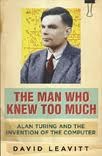Another Wednesday, another blog post, here we go again! I don’t know if anyone even reads these…if you do then let me apologise for them cos they must be a bit convoluted by now!!
This week has been a busy one so far, marred by the fact that I bashed my elbow up pretty badly (which is SUPER painful) but also boosted by the fact that I got a few new books to read which is awesome, AND I fixed the one expensive pen that I own so I was very happy about that also. I’m feeling pretty ambivalent this week if I’m honest, but I’ve just had a conversation at work that I was dreading, and so naturally I’m going to sit here and type it out of me.
I was sat, minding my own business, when the subject of the latest invite out for a drink came up. After a bit of chatting someone asked if I was going and I said no. People then found out that I don’t particularly like to drink (or indeed eat) in front of people I don’t know, but also that alcohol isn’t really a feature in my life (apart from the odd drink at special occasions and Christmas) and from here the whole office dissolved into questions. ‘But don’t you like….’ ‘But what do you do at parties?’ ‘But what if someone offers you a drink?’ ‘But what if everyone else is drinking?’ to which I answer ‘no’ ‘I enjoy the party and drink other things’ ‘I ask for lemonade’ and ‘I don’t care’. the best one is when they start a sentence with ‘well you know when you’re drunk….’ and I’m just stood there like ‘no, I don’t.’
A few of you may have read blog posts by the Non-Alcoholic Student here on WordPress (and if you haven’t then you need to head over there immediately cos it’s one of the best blogs I’ve read on here), but they definitely manage to explain this a lot better (and more eloquently I might add) but if I’m totally honest then I don’t really know why I don’t drink. Admittedly I don’t like most alcohol, but there are a few common drink that I do actually like. I just choose not to have them. Whether it’s psychological, or just the fact that I like being entirely in control of myself I don’t know. But the problem emerges when I try to explain this to other people. It can get complicated, and even sometimes I’m sure people have though I’m lying because I’ve struggled to explain exactly and precisely why, especially when you take into account the fact that I’m only 22 and should be out every other night if my peers are anything to go by.
People have tried to get me drunk before. Maybe that’s why I’m so mistrusting, honestly I don’t know.
It’s a difficult thing to explain but I have a feeling that there must be something innate in me that doesn’t like it, because I don’t like eating and drinking in front of people I don’t know full stop! Whether alcoholic or not! Honestly it confuses me sometimes.
If you’ve managed to wade your way through all that and have any thoughts then let me know, and thanks for putting up with it I guess! At the end of the day this blog is a place for me to vent a bit and I do feel better now, even though I’m not entirely sure that anything made sense.
Anyhow, here’s to the rest of the week a relaxing few days and then more work!
Until Next Time!! x

